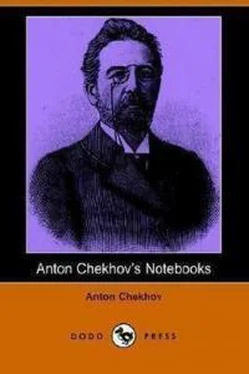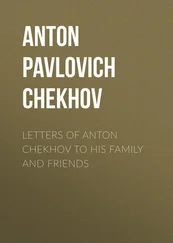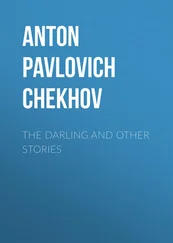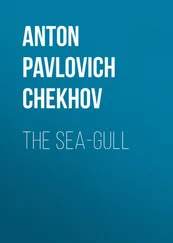Антон Чехов - Notebooks of Anton Chekhov
Здесь есть возможность читать онлайн «Антон Чехов - Notebooks of Anton Chekhov» весь текст электронной книги совершенно бесплатно (целиком полную версию без сокращений). В некоторых случаях можно слушать аудио, скачать через торрент в формате fb2 и присутствует краткое содержание. Год выпуска: 2014, Издательство: epubBooks Classics, Жанр: Биографии и Мемуары, на английском языке. Описание произведения, (предисловие) а так же отзывы посетителей доступны на портале библиотеки ЛибКат.
- Название:Notebooks of Anton Chekhov
- Автор:
- Издательство:epubBooks Classics
- Жанр:
- Год:2014
- ISBN:нет данных
- Рейтинг книги:4 / 5. Голосов: 1
-
Избранное:Добавить в избранное
- Отзывы:
-
Ваша оценка:
- 80
- 1
- 2
- 3
- 4
- 5
Notebooks of Anton Chekhov: краткое содержание, описание и аннотация
Предлагаем к чтению аннотацию, описание, краткое содержание или предисловие (зависит от того, что написал сам автор книги «Notebooks of Anton Chekhov»). Если вы не нашли необходимую информацию о книге — напишите в комментариях, мы постараемся отыскать её.
Notebooks of Anton Chekhov — читать онлайн бесплатно полную книгу (весь текст) целиком
Ниже представлен текст книги, разбитый по страницам. Система сохранения места последней прочитанной страницы, позволяет с удобством читать онлайн бесплатно книгу «Notebooks of Anton Chekhov», без необходимости каждый раз заново искать на чём Вы остановились. Поставьте закладку, и сможете в любой момент перейти на страницу, на которой закончили чтение.
Интервал:
Закладка:
* * * * *
At twenty she loved Z., at twenty–four she married N. not because she loved him, but because she thought him a good, wise, ideal man. The couple lived happily; every one envies them, and indeed their life passes smoothly and placidly; she is satisfied, and, when people discuss love, she says that for family life not love nor passion is wanted, but affection. But once the music played suddenly, and, inside her heart, everything broke up like ice in spring: she remembered Z. and her love for him, and she thought with despair that her life was ruined, spoilt for ever, and that she was unhappy. Then it happened to her with the New Year greetings; when people wished her "New Happiness," she indeed longed for new happiness.
* * * * *
Z. goes to a doctor, who examines him and finds that he is suffering from heart disease. Z. abruptly changes his way of life, takes medicine, can only talk about his disease; the whole town knows that he has heart disease and all the doctors, whom he regularly consults, say that he has got heart disease. He does not marry, gives up amateur theatricals, does not drink, and when he walks does so slowly and hardly breathes. Eleven years later he has to go to Moscow and there he consults a specialist. The latter finds that his heart is perfectly sound. Z. is overjoyed, but he can no longer return to a normal life, for he has got accustomed to going to bed early and to walking slowly, and he is bored if he cannot speak of his disease. The only result is that he gets to hate doctors—that is all.
* * * * *
A woman is fascinated not by art, but by the noise made by those who have to do with art.
* * * * *
N., a dramatic critic, has a mistress X., an actress. Her benefit night. The play is rotten, the acting poor, but N. has to praise. He writes briefly: "The play and the leading actress had an enormous success. Particulars to–morrow." As he wrote the last two words, he gave a sigh of relief. Next day he goes to X.; she opens the door, allows him to kiss and embrace her, and in a cutting tone says: "Particulars to–morrow."
* * * * *
In Kislovodsk or some other watering–place Z. picked up a girl of twenty–two; she was poor, straightforward, he took pity on her and, in addition to her fee, he left twenty–five roubles on the chest of drawers; he left her room with the feeling of a man who has done a good deed. The next time he visited her, he noticed an expensive ash–tray and a man's fur cap, bought out of his twenty–five roubles—the girl again starving, her cheeks hollow.
* * * * *
N. mortgages his estate with the Bank of the Nobility at 4 per cent, and then lends the money on mortgage at 12 per cent.
* * * * *
Aristocrats? The same ugly bodies and physical uncleanliness, the same toothless old age and disgusting death, as with market–women.
* * * * *
N., when a group is being photographed, always stands in the front row; on addresses he always signs the first; at anniversaries he is always the first to speak. Always wonders: "O soup! O pastries!"
* * * * *
Z. got tired of having visitors, and he hired a French woman to live in his house as if she were his mistress. This shocked the ladies and he no longer had visitors.
* * * * *
Z. is a torch–bearer at funerals. He is an idealist. "In the undertaker's shop."
* * * * *
N. and Z. are intimate friends, but when they meet in society, they at once make fun of one another—out of shyness.
* * * * *
Complaint: "My son Stepan was delicate, and I therefore sent him to school in the Crimea, but there he was caned with a vine–branch, and that gave him philoxera in the behind and now the doctors can not cure him."
* * * * *
Mitya and Katya were told that their papa blasted rocks in the quarry. They wanted to blow up their cross grandpapa, so they took a pound of powder from their father's room, put it in a bottle, inserted a wick, and placed it under their grandfather's chair, when he was dozing after dinner; but soldiers marched by with the band playing—and this was the only thing that prevented them from carrying out their plan.
* * * * *
Sleep is a marvelous mystery of Nature which renews all the powers of man, bodily and spiritual. (Bishop Porphyrius Usgensky, "The Book of My Life.")
* * * * *
A woman imagines that she has a peculiar, exceptional constitution, whose ailments are different from other people's and which cannot stand ordinary medicine. She thinks that her son is unlike other people's sons, that he has to be brought up differently. She believes in principles, but she thinks that they apply to every one but herself, because she lives in exceptional circumstances. The son grows up, and she tries to find an exceptional wife for him. Those around her suffer. The son turns out a scoundrel.
* * * * *
Poor long–suffering art!
* * * * *
A man whose madness takes the form of an idea that he is a ghost: walks at night.
* * * * *
A sentimental man, like Lavrov, has moments of pleasant emotion and makes the request: "Write a letter to my auntie in Briansk; she is a darling…."
* * * * *
There is a bad smell in the barn: ten years ago haymakers slept the night in it and ever since it smells.
* * * * *
An officer at a doctor's. The money on a plate. The doctor can see in the looking–glass that the patient takes twenty–five roubles from the plate and pays him with it.
* * * * *
Russia is a nobody's country!
* * * * *
Z. who is always saying banal things: "With the agility of a bear," "on one's favorite corn."
* * * * *
A savings bank: the clerk, a very nice man, looks down on the bank, considers it useless—and yet goes on working there.
* * * * *
A radical lady, who crosses herself at night, is secretly full of prejudice and superstition, hears that in order to be happy one should boil a black cat by night. She steals a cat and tries to boil it.
* * * * *
A publisher's twenty–fifth anniversary. Tears, a speech: "I offer ten roubles to the literary fund, the interest to be paid to the poorest writer, but on condition that a special committee is appointed to work out the rules according to which the distribution shall be made."
* * * * *
He wore a blouse and despised those who wore frock coats. A stew of trousers.
* * * * *
The ice cream is made of milk in which, as it were, the patients bathed.
* * * * *
It was a grand forest of timber, but a Government Conservator was appointed, and in two years time there was no more timber; the caterpillar pest.
* * * * *
X.: "Choleraic disorder in my stomach started with the cider."
* * * * *
Of some writers each work taken separately is brilliant, but taken as a whole they are indefinite; of others each particular work represents nothing outstanding; but, for all that, taken as a whole they are distinct and brilliant.
* * * * *
N. rings at the door of an actress; he is nervous, his heart beats, at the critical moment he gets into a panic and runs away; the maid opens the door and sees nobody. He returns, rings again—but has not the courage to go in. In the end the porter comes out and gives him a thrashing.
* * * * *
A gentle quiet schoolmistress secretly beats her pupils, because she believes in the good of corporal punishment.
* * * * *
N.: "Not only the dog, but even the horses howled."
* * * * *
N. marries. His mother and sister see a great many faults in his wife; they are distressed, and only after four or five years realize that she is just like themselves.
* * * * *
The wife cried. The husband took her by the shoulders and shook her, and she stopped crying.
* * * * *
After his marriage everything—politics, literature, society—did not seem to him as interesting as they had before; but now every trifle concerning his wife and child became a most important matter.
Читать дальшеИнтервал:
Закладка:
Похожие книги на «Notebooks of Anton Chekhov»
Представляем Вашему вниманию похожие книги на «Notebooks of Anton Chekhov» списком для выбора. Мы отобрали схожую по названию и смыслу литературу в надежде предоставить читателям больше вариантов отыскать новые, интересные, ещё непрочитанные произведения.
Обсуждение, отзывы о книге «Notebooks of Anton Chekhov» и просто собственные мнения читателей. Оставьте ваши комментарии, напишите, что Вы думаете о произведении, его смысле или главных героях. Укажите что конкретно понравилось, а что нет, и почему Вы так считаете.











